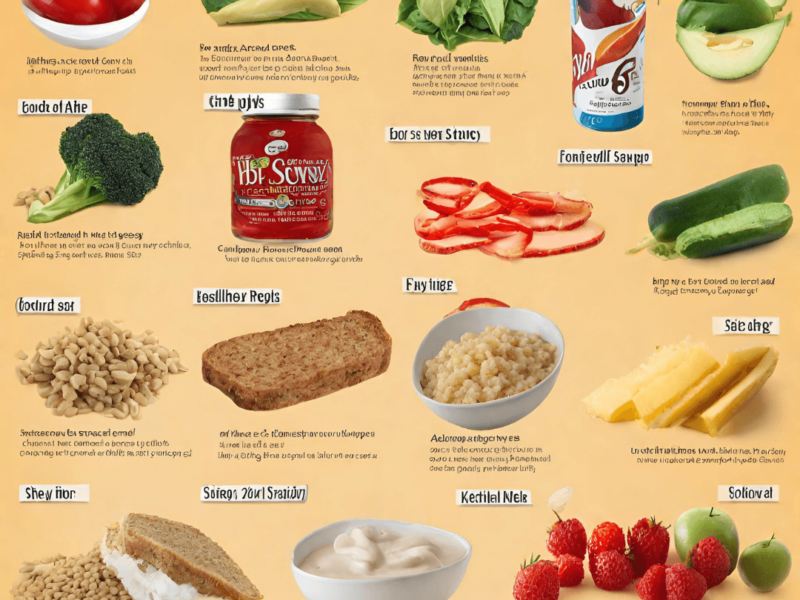Algae as Green Gold: Harnessing the Power of Algae – A Remarkable Meat Alternative and Sustainable Protein Source
Ever wondered if there is an alternative to meat that is both sustainable and highly nutritious? Look no further than algae – a seemingly unassuming aquatic plant that has the potential to revolutionize the way we consume protein. With its numerous benefits for both the environment and human health, algae is truly a green gold waiting to be tapped into. In this article, we will explore the incredible potential of algae as a meat alternative and sustainable protein source.
The Rise of Algae: Nature’s Superfood
In recent years, algae has gained significant attention as a superfood. It is packed with essential nutrients, including protein, omega-3 fatty acids, vitamins, and minerals. Unlike traditional livestock farming, which contributes to deforestation, water pollution, and greenhouse gas emissions, algae cultivation requires minimal resources and has a significantly lower environmental impact.
The versatility of algae is truly remarkable. It can be grown in various environments such as saltwater, freshwater, and even wastewater. It thrives on sunlight and uses photosynthesis to convert carbon dioxide into oxygen. By harnessing the power of algae, we can reduce our dependence on environmentally destructive practices while providing a sustainable solution to the ever-increasing demand for protein.
Algae as an Alternative Protein Source
When it comes to protein, algae shines brightly. Some species of algae contain up to 70% protein, which is comparable to the protein content found in meat and other animal products. This makes it an ideal alternative for those seeking plant-based protein sources.
But what sets algae apart from other plant-based protein sources? Algae offer a complete protein profile, meaning it contains all the essential amino acids our bodies need. This is a rarity among plant-based proteins and makes algae an excellent choice for individuals following a vegetarian or vegan lifestyle.
Furthermore, algae protein is highly digestible, allowing our bodies to efficiently absorb and utilize its nutrients. Its bioavailability far surpasses that of other commonly consumed plant proteins, such as soy or wheat. This means that by incorporating algae into our diets, we can maximize our protein intake without compromising on quality.
The Environmental Benefits of Algae
Beyond its nutritional prowess, algae cultivation boasts numerous environmental benefits. Traditional livestock farming consumes vast amounts of land, water, and feed resources, contributing to deforestation and habitat destruction. Algae cultivation, on the other hand, requires minimal land and water, making it a highly sustainable option.
Algae can also assist in addressing the issue of carbon dioxide emissions. As algae grow, they absorb carbon dioxide from the atmosphere and release oxygen. This natural process helps to mitigate climate change by reducing greenhouse gas levels.
Additionally, algae can be cultivated in wastewater, serving as a natural filtration system. By removing excessive nutrients from wastewater, algae can help combat water pollution and improve the overall quality of our water sources.
Frequently Asked Questions about Algae
1. Is algae safe to consume?
Absolutely! Algae has been consumed by humans for centuries and is recognized as safe by regulatory authorities such as the Food and Drug Administration (FDA). However, it is essential to source algae from reliable suppliers to ensure its quality and safety.
2. Can algae really replace meat?
While algae does offer a highly nutritious and sustainable alternative to meat, it may not fully replace the taste and texture of traditional meat. However, with technological advancements, researchers and food companies are exploring ways to incorporate algae into meat-like products, bridging the gap between the two.
3. Where can I find algae-based products?
Algae-based products, ranging from protein powders to snacks, are becoming increasingly available in health food stores and online retailers. As the demand for algae continues to grow, we can expect to see a wider variety of algae-based products hitting the market.
In Conclusion
Algae is truly a green gold waiting to be harnessed. Its remarkable nutritional profile, sustainability, and environmental benefits make it an excellent alternative to traditional sources of meat and protein. As we strive to create a more sustainable future, incorporating algae into our diets and food systems can play a significant role. So let’s embrace the power of algae and pave the way for a greener and healthier world.
Pendikspor vs Ankaragucu Preview: Predictions, Team News, and Lineups

